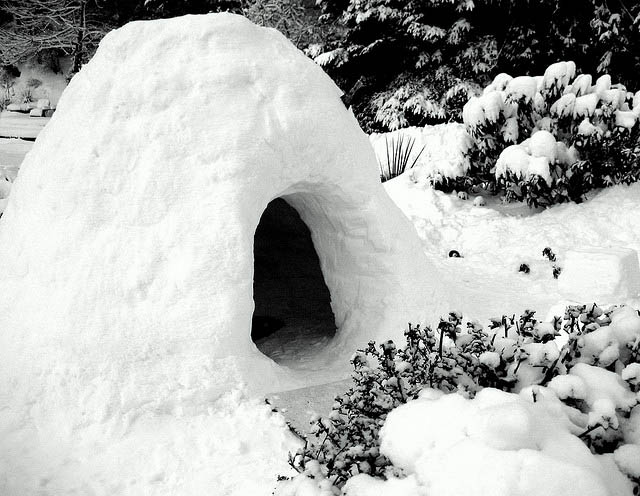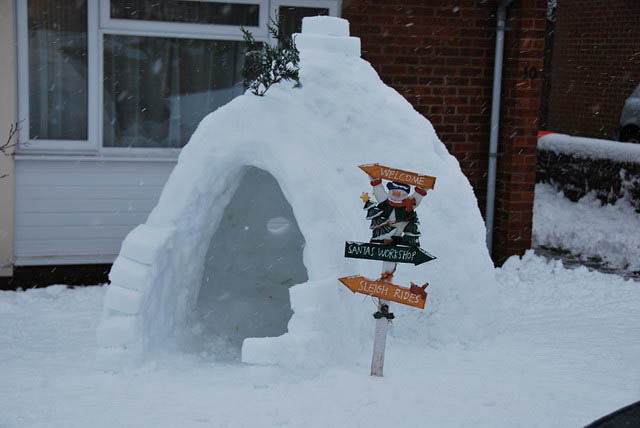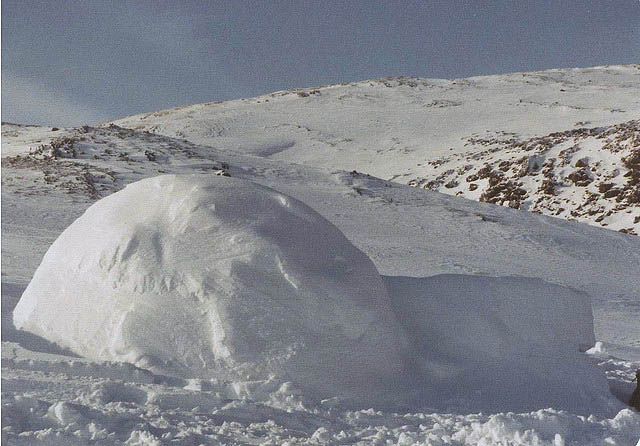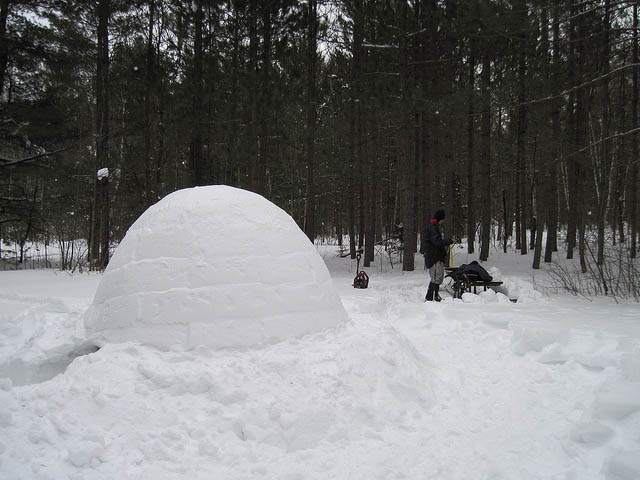An igloo Inuktitut or snow house is a type of shelter built of snow, originally built by the Inuit. Although igloos are usually associated with all Inuit, they were predominantly constructed by people of Canada's Central Arctic and Greenland's Thule area. Other Inuit people tended to use snow to insulate their houses, which were constructed from whalebone and hides. Snow is used because the air pockets trapped in it make it an insulator. On the outside, temperatures may be as low as −45 °C (−49 °F), but on the inside the temperature may range from −7 °C (19 °F) to 16 °C (61 °F) when warmed by body heat alone.
 |
| Igloo Snow House |
The snow used to build an igloo must have enough structural strength to be cut and stacked appropriately. The best snow to use for this purpose is snow which has been blown by wind, which can serve to compact and interlock the ice crystals. The hole left in the snow where the blocks are cut is usually used as the lower half of the shelter. Sometimes, a short tunnel is constructed at the entrance to reduce wind and heat loss when the door is opened. Because of snow's excellent insulating properties, inhabited igloos are surprisingly comfortable and warm inside. In some cases, a single block of ice is inserted to allow light into the igloo. Animal skins were used as door flaps to keep warm air in. Igloos used as winter shelters had beds made of snow, covered with twigs and caribou furs.
Architecturally, the igloo is unique in that it is a dome that can be raised out of independent blocks leaning on each other and polished to fit without an additional supporting structure during construction. An igloo that is built correctly will support the weight of a person standing on the roof. Also, in the traditional Inuit igloo the heat from the kudlik (qulliq, stone lamp) causes the interior to melt slightly. This melting and refreezing builds up a layer of ice that contributes to the strength of the igloo. The sleeping platform is a raised area. Because warmer air rises and cooler air settles, the entrance area acts as a cold trap whereas the sleeping area will hold whatever heat is generated by a stove, lamp or body heat.
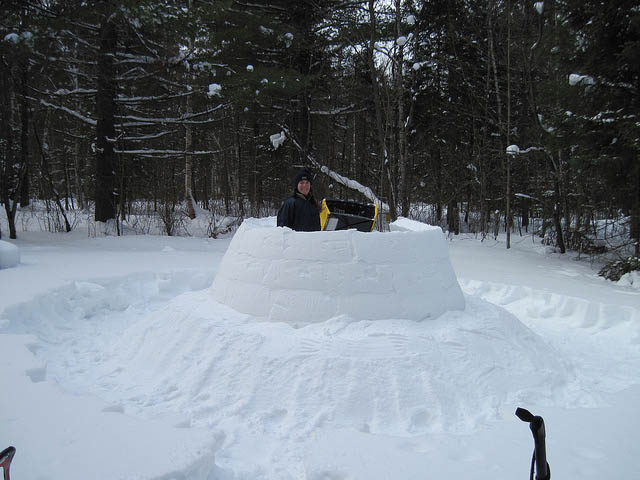 |
| Building Igloo Snow House |
Text source:- Wikipedia. Images are copyrighted by their owners. Found any copyright issue, contact the administrator immediately. Report it now!
You have read this article Canada /
Houses /
North America
with the title Igloo. You can bookmark this page URL http://tiffanyeatworld.blogspot.com/2011/12/igloo.html. Thanks!









